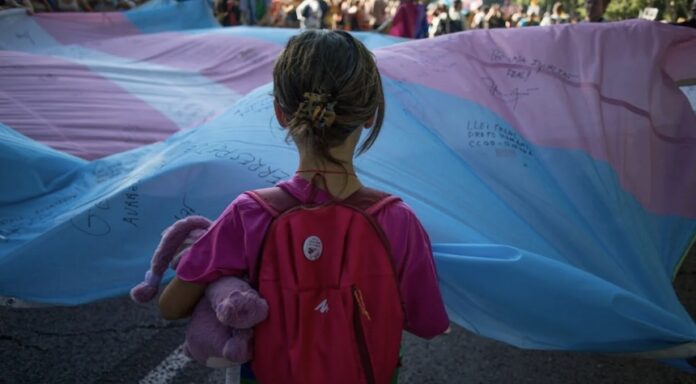Washington Democratic legislators have proposed a controversial bill to allow youth shelters to refuse to tell parents that their child ran away if the child is seeking “gender-affirming” treatment.
Senate Bill 5599, which was sponsored by Senator Marko Liias, (D), was passed in the Senate with a vote of 27-19. It is currently being considered for the House Committee on Human Services, Youth, and Early Learning.
State law requires that homeless youth shelters notify parents within 24 to 72 hours of a child being taken away. The shelter must notify parents of the child’s location, emotional and physical condition, as well as how they arrived at the shelter.
Shelters are allowed to notify parents only if there is “a compelling reason,” even if they suspect that the child might be being abused or neglected.
The legislation creates an additional reason for shelters housing homeless youth to refuse to notify parents if the child seeks “gender-affirming treatment” or “reproductive health services.”
According to state law, gender-affirming treatments include breast augmentation, facial feminization surgeries, facial masculinization surgeries, genital modification, hairline modification, hair removal, hysterectomy, tracheal shave, rhinoplasty, liposuction, mastectomy, penile implant, and voice modification.
Supporters of the bill claimed that denying a child’s gender identity is unsafe for their children’s safety.
Sara Kukkonen, Planned Parenthood Greater Northwest educator, was a supporter of the proposal and testified last week before the House Human Services and Youth Committee about the difference between an “unsafe” and “unsupportive” house.
“Unsafe” can refer to violence and unsupportive households can lead to abuse. Although it might not be safe for everyone, unsupportive homes can have severe consequences on someone’s mental well-being. Kukkonen said that they don’t always mean the same thing in all contexts. In this instance, they could lead to the same outcome.
The proposed legislation’s opponents argue that it would violate parental rights and allow for surgery that could have irreversible effects on a child’s body.
The bill does not require youth shelters or parents to notify parents if a child has received the “gender-affirming treatment” for a potentially permanent period.
Although Democratic legislators claimed the legislation was intended to protect children who were “rejected” or abandoned, the bill does not require evidence or suspicion that parents have abandoned their child.
An amendment to the legislation proposed that the child receive counseling services prior to undergoing any medical procedures. However, this proposal was rejected. Another proposal, which would have restricted “gender-affirming treatment” to counseling services was rejected.
Liias stated that we must focus on the vital needs of the young person and ensure they are receiving the care they need. Then, we should focus on the important family reunification process with the support and resources available to help them.


